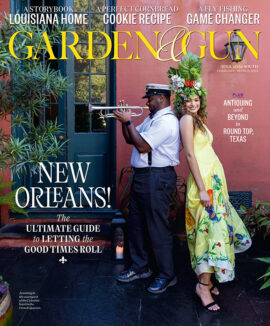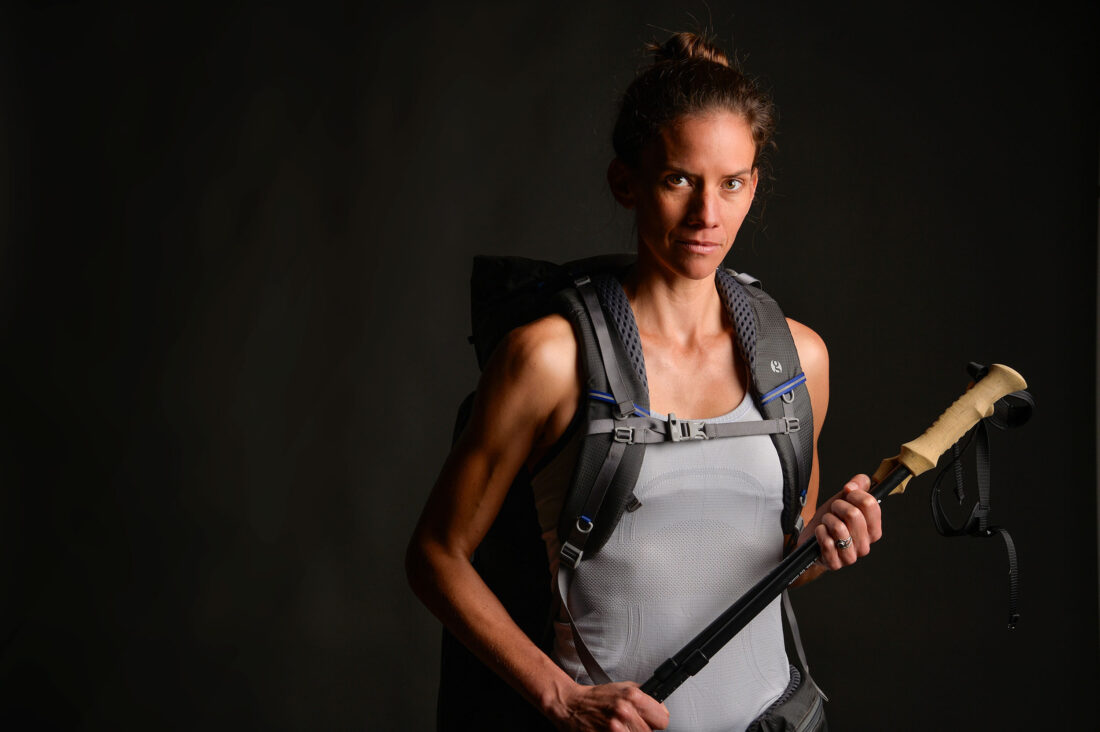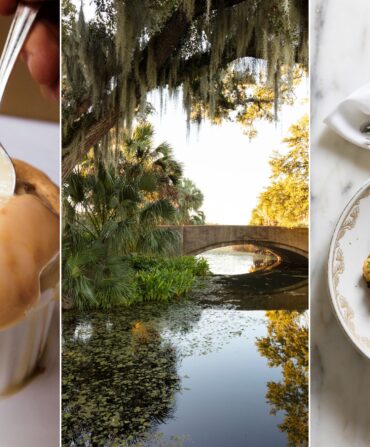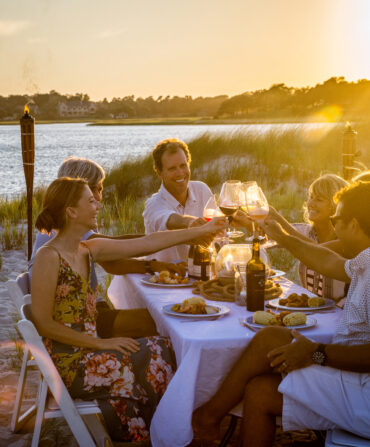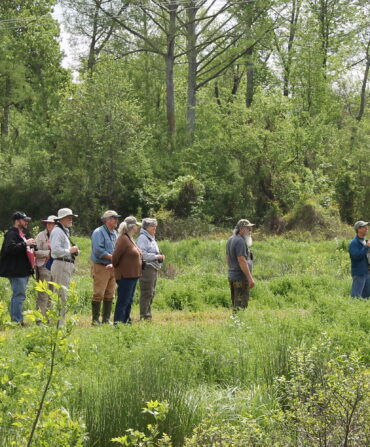As one of the all-time greatest Appalachian Trail thru-hikers, Jennifer Pharr Davis is a wilderness enthusiast, conservation advocate, traveling speaker, wife, mother, and inspiration in the way she humbly acknowledges all we have to learn from the outdoors. In 2011, at the age of twenty-eight, Pharr Davis hiked an average of forty-seven miles per day for forty-six days on the Maine-to-Georgia trail, setting the overall speed record for both males and females at the time. (She still holds the record in the latter category.) Named a National Geographic Adventurer of the Year following her record-breaking trek, she served on the President’s Council on Nutrition, Sports, and Fitness under both Biden and Trump, and back at home in Asheville, North Carolina, she founded Blue Ridge Hiking Company. Today, Pharr Davis’s thru-hiking expertise spans the pages of her nine published books and over 14,000 miles of long-distance trails (in all fifty states and on multiple continents). Whether you are an avid hiker or planning your first visit to the mountains, Pharr Davis’s words will undoubtedly serve as encouragement to embrace the wild this spring.
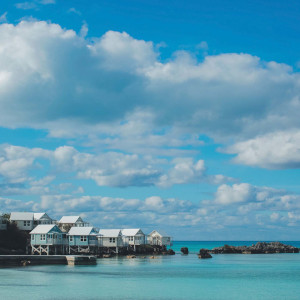
Early in your hiking career, what was your initial draw to the Appalachian Trail?
I’m from the Southern Appalachians, and I don’t think growing up you realize how place is a part of you. I moved to Birmingham, Alabama, for college and missed the mountains and didn’t know what I was going to do after college. I wanted time and a place to figure things out, and I felt pulled back to the mountains. I was not especially outdoorsy—I’d only spent two nights in the woods my entire life—but I had heard enough about the Appalachian Trail to be intrigued by it. I think it looked or felt enough like home to feel inviting to me even as an inexperienced backpacker.
Would you say that completing a hike like the 2,190-plus-mile Appalachian Trail is more than just a physical accomplishment for you?
Oh absolutely! It’s a very holistic experience when you’re doing a long-distance hike. It’s going to be very physical, it will be extremely mental, most trails there’s a social component to it, and then for me, it’s spiritual as well.
What did your time on the trail teach you about facing challenges and the endurance that often requires?
I definitely became a lot more self-sufficient through long-distance hiking. I started doing most of it on my own, and when I got into challenging situations, I usually had to get myself out. I’ve also become more comfortable, on the flip side, just asking for help. When you’re out there and you do have trouble—you’ve misplanned, or you might be lost, or you’re low on food, or you get injured—you learn to ask strangers for help. It’s not something that is normalized in our culture, but it’s a very good skill to learn: to be vulnerable enough to ask for help and to receive help. When you’re willing to do that you also realize most people are really good people.
When it comes to endurance, I’ve owned the fact that endurance often… is not pretty. There’s all this pressure to show up a certain way and look a certain way and always be your best self, but if you want to put in miles every day, if you don’t want to quit, the trail ingrains in you that you have to be willing to keep moving when it hurts and when it’s hard and when you’re crying. The career takeaway for me is just to show up and give your best every day, even when it’s not ideally the way you want to lead or present yourself. Sometimes endurance is just a little bit ugly.
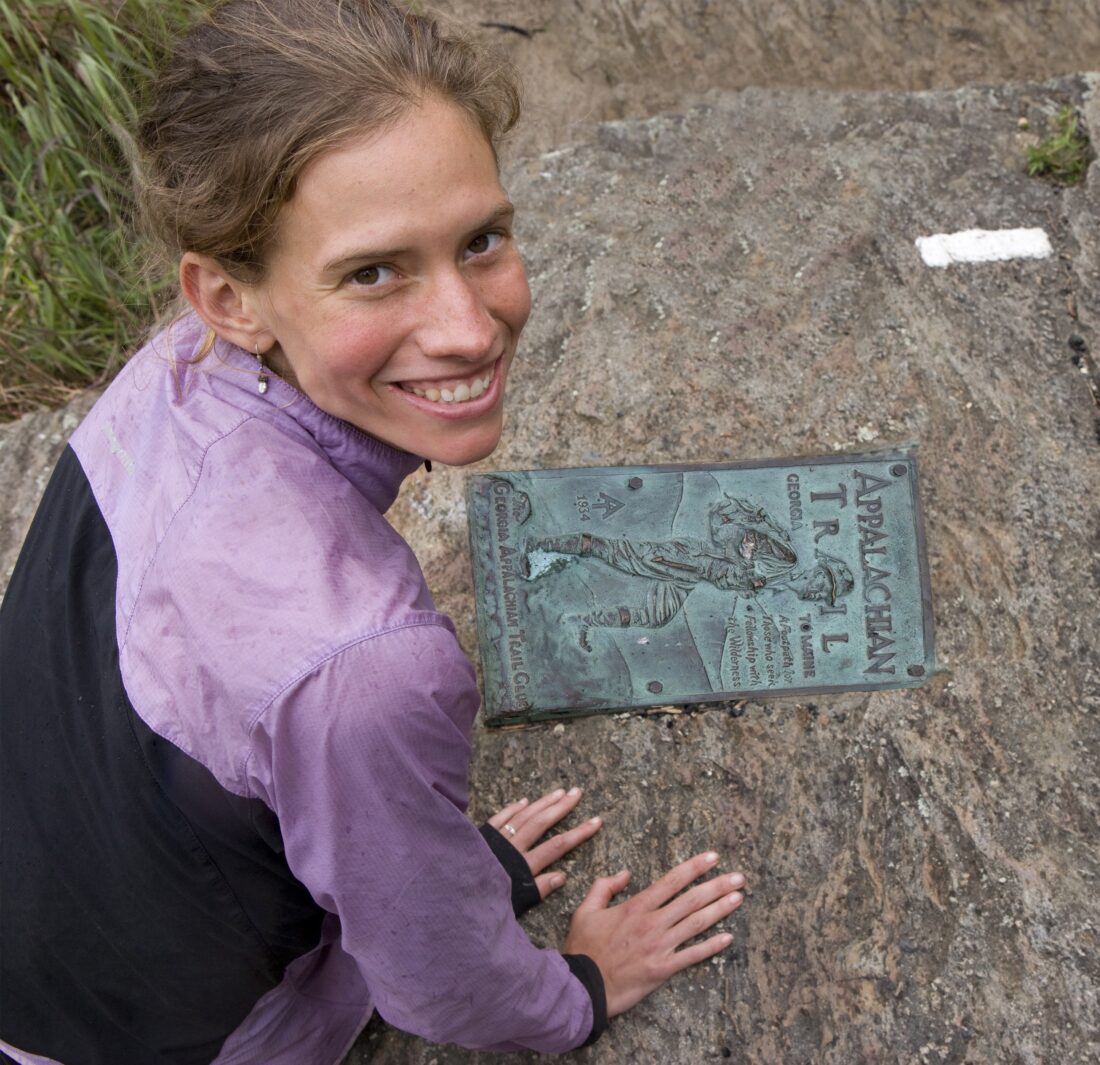
How has being in the wilderness changed your perception of beauty?
Being in the outdoors has totally transformed my definition of beauty and success. As a woman, I felt a lot more beautiful on the trail. I think it was being in a really beautiful natural environment and feeling connected to it and feeling my self-esteem rise because of that. I really started to value my body for what it was capable of.
You see yourself differently when you’re out of cultural context. I was not bombarded by cultural ideals of beauty while I was hiking the Appalachian Trail. There were no billboards or magazines or commercials and I wasn’t on social media. So I started to see myself very differently; I started to see myself through my interactions with other people—if I could make someone smile, that made me feel beautiful. Again, I started to see myself as a part of nature, and so if I was in this beautiful moment or landscape or sunset, I felt beautiful.
Can you share any other wisdom the trail has offered you?
The thing that always strikes me is my first big hike on the Appalachian Trail took place right after college, and I felt like I learned more on the trail than I did in four years at a university. I loved my college experience, I learned a ton, but what I learned on the Appalachian Trail were life lessons and life skills. I have run my own businesses now for sixteen years, and I know that the traits of being an entrepreneur and self-employed are skills I developed through thru-hiking. I didn’t have a business degree, and the ideas of vision and adaptability and communication and learning; how to recover on the move; and being comfortable being uncomfortable—all those skills that the trail gives you equip you to do really well in whatever path you choose in life. Whether it’s being a mother, whether it’s being a business owner, whether it’s both. The lessons of the trail are pretty invaluable, and it’s a wisdom unfortunately I think we’re not valuing as much as we used to.
In your book Becoming Odyssa, you write, “It was emancipating to perform based on my ability as opposed to other people’s expectations—including my own.” Can you talk more about navigating expectation?
One thing the Appalachian Trail gave me is it made me feel wild. That’s a really fun feeling, and when I hear words that are more common in our culture, like “empowered”—I think that’s a close relative of wild. To be in the woods and feel a part of nature, it makes you feel like you can do more than people expect of you. It makes you feel like you can pivot, and it strips away these labels we all get growing through life.
Even people who love us have certain expectations of what we can do or might want to do. That’s not a negative thing at all, but remember that deep inside you something is wild—and it’s not this unruly kind of feral quality, it’s this sense of “I can be a little bit unpredictable in a positive way, and I can make the calls for my own life. If I feel like I have a talent or a passion, I am wild enough to pursue it and not let other people’s expectations define me.” That sense of wildness has been one of my favorite discoveries of spending time outdoors.
For many, hiking can be a bit scary. How do you prepare for things that intimidate you?
When I started backpacking, I thought fear was a negative emotion, something to be avoided, and then somewhere along the way, I realized fear is just your body’s way of keeping you safe and that it’s really important to honor that fear and spend some time with it and see where it’s coming from. There are instances where fear comes up very quickly, and you don’t have any time to think about it. For example, people often ask, “Well, are you scared if you see a bear?” Yes! If I round a turn and there is a bear right there, I don’t care how many I’ve seen, I’m scared and my body immediately reacts and takes steps to back away quickly, and that’s a good thing.
I think fear as an emotion holds us back in life when we don’t take the time to define it. For example, when I was trying for the overall record on the Appalachian Trail, I was like, “Well, what is the worst-case scenario?” Pretty much the number one answer to every “what is the worst-case scenario?” is: I could die. That is the worst-case scenario. Then I look at the facts or the stats or the data around it, and it’s like, am I likely to die on the trail? No, I’m not. I’m more likely to be driving down the interstate and have a car accident and pass away that way. Okay, so we can kind of cross that off. That’s not a reason to keep me from doing this.
Then I might go to, “Well, I might get hurt or I might get injured.” Okay, well what do we do to try and prevent that? Or how do we make a plan for it? Usually, at some point, I get to “I’ll look bad,” “I’ll fail,” or “people will think lesser of me,” and I realize that so much of the big fear emotion is actually tied to shame and failure. And that’s not something I want to hold me back. When I can realize that and then ask myself, “Would I rather fail or would I rather not try?” that’s usually where I’m able to make a good decision.
Why are you passionate about getting others into nature?
There are so many different professions where you can help people as a caregiver. There are doctors and nurses, there are teachers, there are ministers, pastors, counselors—all these people who are trying to help people, and I’ve always felt very inferior to any of that, but I saw nature provide in this large-scale way for all these different people with all these different needs. And so part of my calling was this sense of, “I might not be able to meet these people’s needs, but if I can get them outside, I think there’s a good chance nature will be able to offer them something that’s really helpful and beneficial.”
I didn’t really care too much about conservation and taking care of nature until I experienced it on a personal level, and now, as someone who’s very passionate about conservation and protecting habitat and wildlife, I’m fully aware that if we don’t give people experiences with nature they’re not going to value it and they’re not going to want to protect it in the same way.
Do you have some favorite hikes in the South?
Yes! I love being an outdoorswoman in the Southeast. There is nowhere else in the United States I would rather live. Obviously the Appalachian Trail in the South is one of my favorites. There are so many shorter long-distance trails in the Southeast that if you don’t want to take five or six months to go hike, you can complete some of these others in a week or a couple weeks. Some I’ve done that I really love are: the Pinhoti Trail, which is in Alabama and Georgia; the Foothills Trail, which is in South Carolina; and the Benton MacKaye Trail, which is in Georgia and North Carolina. Two I haven’t done in full, but that I’ve done pieces of, are the Allegheny Trail, which is in West Virginia, and the Florida Trail. Oh! And the [North Carolina] Mountains-to-Sea Trail is one I’ve done and I love, but it is a little longer.
There is a network of hiking trails all across the Southeast, and it’s a region where you really can hike and backpack and explore in all four seasons. You can get everything from mountains to piedmont to coastline and beaches, so it’s a wonderful, wonderful place to be a hiker and outdoors person.
This interview has been edited for clarity

